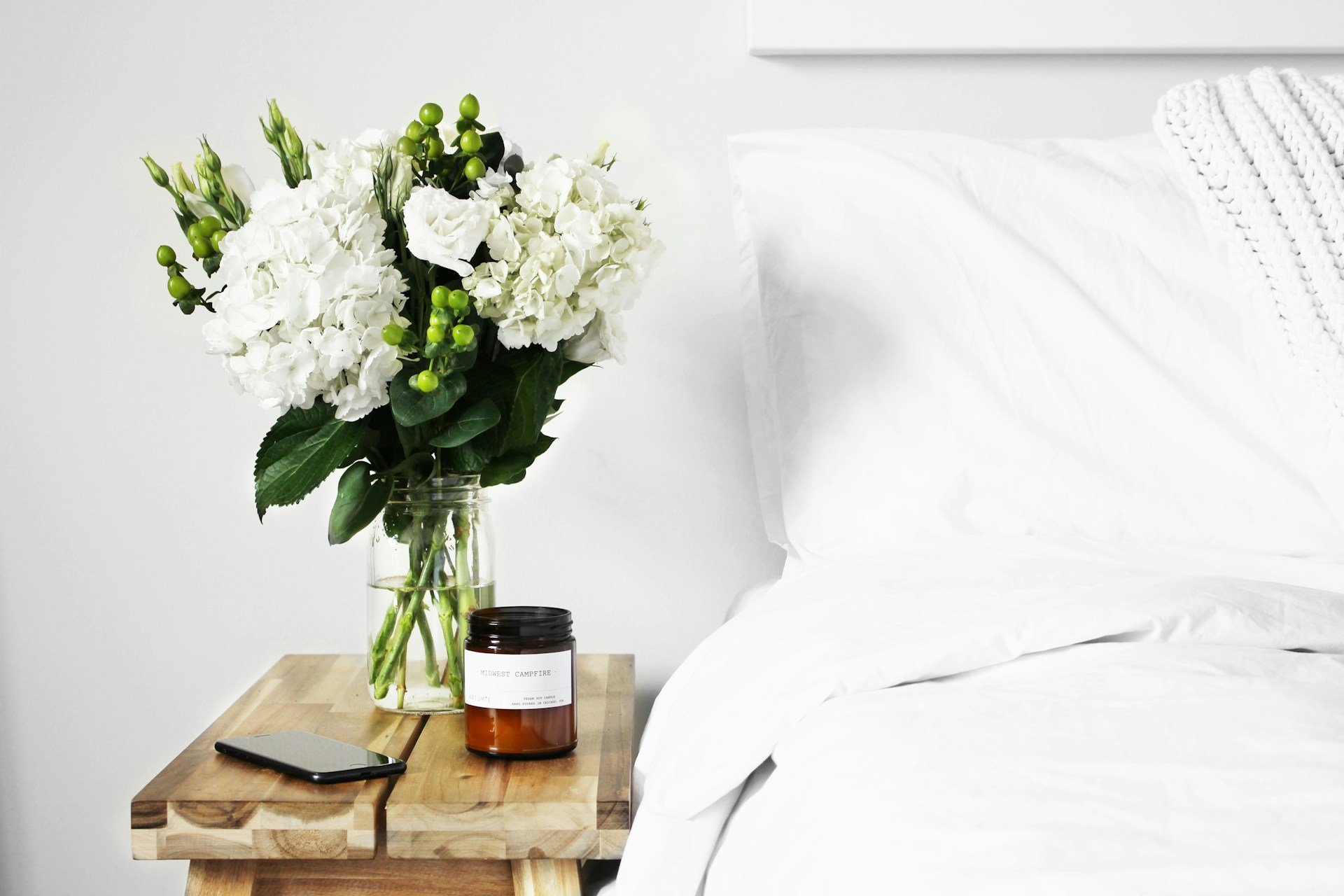Lifestyle
Discover the Varieties of Tinnitus: A Guide to Understanding Different Types

Tinnitus is a condition that manifests as a ringing or buzzing in the ears without an external sound source. It is prevalent among adults, affecting between 10% and 25% of the population, though children can also experience it. The condition can be temporary or develop into a chronic issue, depending on its type and severity.
When diagnosed with tinnitus, it is typically categorized into one of three types: subjective, objective, or somatic. Each type has distinct causes and treatment options. Understanding these differences is crucial for effective management.
Subjective tinnitus is the most common form, characterized by sounds that only the affected individual can hear. A leading cause of subjective tinnitus is noise trauma, particularly for those working in loud environments like construction sites or concert venues. Other underlying medical conditions can also contribute to this form of tinnitus.
In terms of treatment, addressing any underlying health issues is the first step. Cognitive behavioral therapy (CBT) is often recommended to help manage the condition. Additionally, techniques such as noise masking and stress reduction can be beneficial. For those with concurrent hearing loss, hearing aids may provide relief.
Despite the lack of a specific medication to treat tinnitus directly, doctors may prescribe anti-anxiety medications or antidepressants. These can help manage the mental health side effects and improve sleep quality. “Overall, CBT has been shown to improve quality of life more than any other treatment method used for tinnitus.”
Understanding the type of tinnitus one has is essential for tailoring the most effective treatment plan. Each form of tinnitus has unique characteristics and requires a specialized approach to manage symptoms and improve quality of life.
Let us know what you think, please share your thoughts in the comments below.

Lifestyle
Unlock Your Best Self: Discover the Perfect Sleep Hours for Optimal Health

Understanding how much sleep you need is crucial for maintaining optimal health and well-being. Just like a balanced diet and regular exercise, sufficient sleep is a cornerstone of a healthy lifestyle. Yet, when life gets hectic, sleep is often the first thing we compromise.
For most adults, the sweet spot is between 7 to 9 hours of sleep per night. However, this range can fluctuate based on several personal factors. It’s important to recognize that everyone has unique sleep needs, influenced by various elements such as age and genetics.
Age is a primary determinant of how much sleep you require. Sleep duration recommendations are typically segmented by age groups. While these guidelines provide a general framework, individual differences mean some people might need more or less sleep than the average.
Genetics also play a significant role in determining your sleep needs. Some genetic mutations can influence not only the amount of sleep you require but also your preferred sleep schedule and how you cope with sleep deprivation. For instance, a specific genetic mutation allows some individuals to function well on just 6 hours of sleep, while others without this mutation may need around 8 hours.
“Your genetic makeup isn’t something you can change, and there’s no practical way to know whether you carry one of these mutations.”
Thus, it’s crucial to listen to your body and assess how you feel to gauge if you’re getting enough rest.
The quality of your sleep significantly impacts how much rest you need. Poor sleep quality can leave you feeling exhausted even after a full night’s sleep. On the other hand, high-quality sleep might allow you to function well with slightly less sleep.
“Short sleep duration and low sleep quality are responsible for many adverse sleep-related effects.”
For example, studies have shown that poor sleep quality is linked to increased stress levels. Therefore, focusing on both the quantity and quality of sleep is essential.
Sleep disorders, such as sleep apnea, can also detrimentally affect sleep quality. If you frequently wake up feeling unrested or experience unexplained fatigue, consulting a healthcare professional is advisable.
The amount of sleep you require is influenced by a variety of factors, including your age, genetic predispositions, and the quality of your sleep. While 7 to 9 hours per night is generally recommended for adults, paying attention to how you feel can help you determine your personal sleep needs.
Let us know what you think, please share your thoughts in the comments below.
Lifestyle
Unlock the Secrets to a Longer, Healthier Life with These Daily Habits

The choices we make each day can significantly influence our health and well-being down the line. While genetics play a role in determining lifespan, lifestyle choices are equally important. According to Harvard Health, “experts estimate that about 25% of the variation in human lifespan is determined by genetics. But the rest can be attributed in large part to how we take care of our bodies.” It’s not just about living longer but enjoying those years with vitality and good health. Here are some daily habits that research suggests can help you achieve a longer, healthier life.
Stay Active Throughout the Day
Regular movement is crucial for longevity. The longest-lived individuals often don’t adhere to strict exercise regimens but incorporate activity into their daily routines.
“People in blue zones, they’re not thinking about their health or a diet or an exercise program. They’re not doing anything except living their lives,” says Buettner. Consider simple activities like gardening, which encourages regular physical activity. Buettner also notes, “I sat for two days with a 104-year-old woman who got up and down off the floor 30 times.”
Consider Intermittent Fasting
Intermittent fasting, particularly when meals are consumed earlier in the day, offers numerous health benefits.
“Clinical data shows that intermittent fasting — an eating pattern where you cycle between periods of eating and fasting — can improve insulin stability, cholesterol levels, blood pressure, mental alertness and energy,” explains longevity expert Sergey Young. A common approach is the 16:8 method, where all meals are consumed within an eight-hour window.
Make Sleep a Priority
Quality sleep is essential for overall health and longevity.
“Sleep is restorative,” emphasizes cardiologist and sleep expert Virend Somers, MD, PhD, from the Mayo Clinic. He adds, “During sleep, your brain and body perform many critical tasks important for overall health… Sleep has multiple functions on every biological level.”
Maintain a Healthy Weight
Keeping a healthy body weight is linked to a lower risk of various diseases. A study led by Johns Hopkins found that maintaining a body mass index (BMI) of less than 25 significantly reduced the risk of death.
“A Johns Hopkins-led study of 6,200 men and women over eight years found that those who adopted four smart behaviors reduced the chance of death from all causes within that time frame by an astounding 80 percent,” reports Johns Hopkins Health.
Limit Added Sugars
Excessive sugar intake is detrimental to health and can reduce lifespan.
Sergey Young warns, “Sure, in the right doses, sugars from fruits, vegetables and even grains play an important role in a healthy diet… But make no mistake: Excess sugar in all its forms is poison.”
Embrace a Whole Foods Diet
Eating a diet rich in whole foods and stopping when you’re 80% full can lead to better health outcomes.
David Katz, a preventive medicine specialist, explains, “It’s a remarkably healthy diet because it adheres to the fundamental theme of healthy eating—it’s real food, mostly plants in a sensible, balanced assembly.”
Avoid Excessive Alcohol and Smoking
Limiting alcohol and avoiding smoking are crucial for longevity.
“One of the biggest toxic habits is excessive use of alcohol,” warns Young. He also advises against smoking, noting, “According to the CDC, cigarette smoking is behind 480,000 deaths per year in the U.S.”
Living a longer, healthier life is within reach by making mindful choices each day. By incorporating these habits into your daily routine, you can enhance not only your lifespan but also your quality of life.
Let us know what you think, please share your thoughts in the comments below.
Lifestyle
Embrace Your Gray: The Key Hair Care Tip You Need to Know

As we age, our hair undergoes significant changes, one of the most noticeable being the transition to gray. In our younger years, we might have opted for any shampoo or conditioner that was on sale or had a pleasant scent. However, when hair turns gray, this approach often falls short.
A common recommendation for maintaining the softness and shine of gray hair is to use purple shampoo, which helps neutralize any yellowing that might occur. Lisa Fennessy, a gray hair influencer and founder of The New Knew, a blog dedicated to clean beauty, highlights a frequent misstep many make with gray hair care: the misuse of purple shampoo.
Understanding the yellowing effect is crucial. Gray hair, having lost its pigment, is susceptible to discoloration. Brandie Devillier, a platform educator at the Aveda Arts & Sciences Institute, has explained, “Think of a white T-shirt: the more you wear it, the less crisp and clean it becomes. The same thing happens to our gray hair—pollution, hard water, and even too much sun can cause it to become lackluster.”
To combat this, hairstylists often recommend purple shampoo and conditioner. Krysta Biancone, co-founder of Amari Salon & Spa, notes, “Purple shampoos neutralize yellow tones in gray hair, keeping it bright and vibrant.”
However, Fennessy warns against a common mistake: confusing blue shampoo with purple shampoo. In a TikTok video, she points out that blue shampoo can be problematic for gray hair. Cindy Marcus, a professional hairstylist and editor-in-chief of Latest Hairstyles, cautions, “When using blue-toned shampoo, the gray hair is very porous and will grab the blue tone which will turn gray or white hair blue.”
Even when using purple shampoo, there might be a method issue. Fennessy advises, “If you’ve tried using purple shampoo to brighten your gray (or blonde) hair, but it doesn’t work—you are probably doing it wrong!” She suggests that the key is to leave the shampoo in longer, treating it almost like a leave-in conditioner to allow it to effectively tone the hair.
Additionally, it’s important to choose a purple shampoo that is highly moisturizing. As hair grays, the scalp’s production of sebum, a natural hydrating oil, decreases. Fennessy recommends using a non-stripping shampoo that retains natural oils. “Most conventional shampoos are gonna strip the oils from your hair, which leave your scalp and your hair dry,” she explains. “You want a shampoo that’s low in surfactants and leaves the natural oils that your scalp produces in place while removing dirt and grime.”
For those seeking the ideal purple shampoo, Fennessy suggests a product from the German brand Bruns, available on her website, while Biancone previously recommended Clairol Shimmer Lights.
It’s important to remember that blue shampoo is specifically formulated to reduce brassiness in brunettes, not for gray hair care. By avoiding this common mistake and selecting the right products, you can maintain the vibrancy and health of your gray hair.
Let us know what you think, please share your thoughts in the comments below.
-

 Health6 months ago
Health6 months ago17-Second Neuropathy Solution
-

 Nutrition10 months ago
Nutrition10 months agoThe Aging Secret of Vitamin D Unveiled
-

 Health1 year ago
Health1 year agoPreventing Falls and Injuries for Seniors
-

 Health5 months ago
Health5 months agoOncologist Reveals Top 5 Cancer Prevention Tips You Shouldn’t Ignore
-

 Nutrition1 year ago
Nutrition1 year ago5 AMAZING Dinner Recipes That Are Also HEALTHY
-

 Lifestyle6 months ago
Lifestyle6 months agoSleep Soundly with These 11 Expert-Approved Bedtime Routines
-

 Health11 months ago
Health11 months agoDownsizing Tips: Simplifying Your Lifestyle
-

 Lifestyle2 months ago
Lifestyle2 months agoMorning Habits That Could Add Years to Your Life